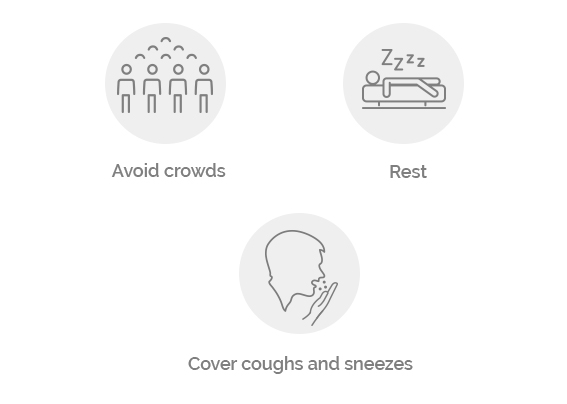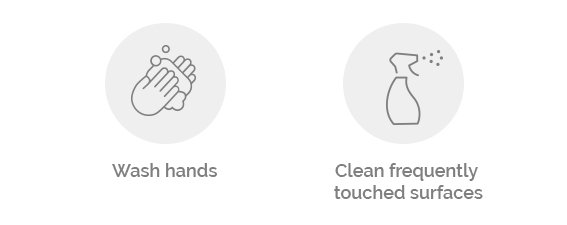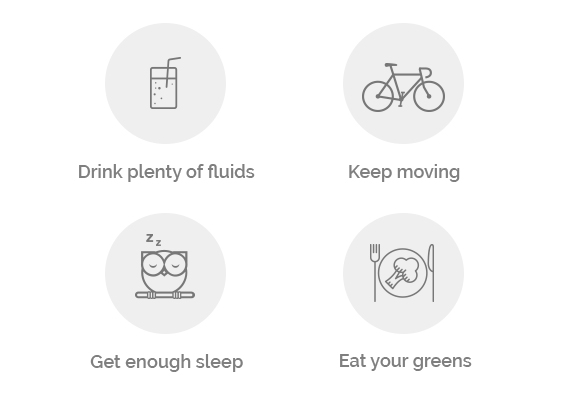The flu in a nutshell
The flu (also known as seasonal influenza) is an acute viral infection caused by viruses that circulates worldwide.
Symptoms include a sudden onset of fever, cough (usually dry), headache, muscle and joint pain, severe malaise (feeling unwell), sore throat and a runny nose. The time from infection to illness is about 2 days.(1) Find out more about the symptoms.
Most people recover from fever and other symptoms within a week without requiring medical attention. However, influenza can cause severe illness or death, especially in people at high risk.(2)
Who is at risk?
The highest risk of complications occurs among children under 59 months, the elderly, pregnant women and people with chronic medical conditions(3). These include people with(4):
- respiratory conditions (such as asthma, chronic obstructive pulmonary disease (COPD), or bronchitis);
- heart conditions (such as heart failure);
- chronic kidney disease;
- liver disease (such as hepatitis);
- neurological conditions (such as Parkinson’s disease or motor neurone disease);
- diabetes;
- spleen problems (such as sickle cell disease);
- a weakened immune system as the result of conditions such as HIV and AIDS, or medication such as steroid tablets or chemotherapy;
- being overweight;
- learning disabilities.
![]()
In addition, healthcare professionals are at high risk of being exposed to the virus during the course of their everyday work. If they remain asymptomatic and continue to work, they may unknowingly act as carriers for the virus – spreading it to the vulnerable patients they care for(5).

How can I protect myself from the flu?
1. Don´t spread or get infected(6)
Stay at home when you are sick
Avoid people who are sick
Cover coughs and sneezes

2. Keep it clean(7)
Wash your hands
Clean frequently touched surfaces

3. Stay fit and healthy(8)
Drink plenty of fluids
Keep moving
Get enough sleep
Eat your greens

4. The World Health Organization (WHO), with its partners, closely monitors the influenza viruses circulating in humans and recommends a seasonal vaccine composition twice a year.(9) Vaccination is especially important for people at higher risk of serious influenza complications, and for people who live with or care for high risk individuals.(10)
(1), (2), (3), (5), (10) https://www.who.int/en/news-room/fact-sheets/detail/influenza-(seasonal)
(4) http://www.nhs.uk/conditions/vaccinations/pages/who-should-have-flu-vaccine.aspx
(6), (7) http://www.cdc.gov/nonpharmaceutical-interventions/home/index.html
(8) https://www.flu65plus.com/articles/no-flu-top-tips-will-help-you-stay-fighting-fit
(9) https://www.cdc.gov/flu/prevent/vaccine-selection.htm




